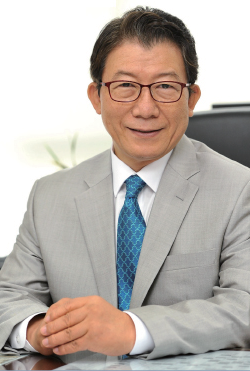

Over the past decade, the world
has experienced a series of
economic misfortunes. The
subprime mortgage crisis
occurred in the United States from 2004
to 2006. It was a nationwide banking
emergency. The collapse of the housing
bubble made mortgage banks insolvent
and caused mortgage delinquencies and
foreclosures. This brought about the U.S.
recession from 2007 to 2009.
The U.S. subprime mortgage crisis naturally
developed into a full-blown international
banking crisis with the collapse
of investment bank Lehman Brothers in
September 2008. Massive bailouts were
undertaken to prevent a possible collapse
of the world’s financial system.
Nonetheless, this crisis was followed by a
global economic downturn—the so called
Great Recession.
The Great Recession occurred during
the late 2000s and early 2010s. The scale
and timing of the recession varied from
country to country. The IMF concluded
that it was the worst global recession
since World War II.
This global recession critically hit some
weak economies in Europe. For example,
the five countries in Southern Europe
such as Portugal, Ireland, Italy, Greece
and Spain had to
struggle with large debts
and trade deficits. Their tourism industry
was in shambles. Due to the inherent
defects of the currency union, the member
countries with large trade deficits in
the euro zone could not individually
implement a monetary policy. So they
could not resolve problems of low growth
and increasing high unemployment.
While free-market economies are suffering
miserably, some socialist countries
like China have been flourishing. Luckily
or strategically, China capitalized on
becoming “the factory of the world”. We
have witnessed a grand migration of jobs
to China from the rest of the world.
Conventional trade theories have never
predicted this phenomenon.
According to the conventional simple
trade theory, in the world of two countries,
two commodities and two factors,
the capital-abundant country will export a
capital-intensive commodity to the laborabundant
country. Meanwhile, the laborabundant
country will export labor-intensive
commodity to the capital abundant
country. Thereby both nations can gain
mutual benefits by engaging in free trade.
These trade predictions hold with a set of
assumptions: the two countries share the
same technology; labor and capital do not
move between the two countries; and the
two economies are in full employment.
However, these three assumptions are not
true in reality.
Another conventional theory says that
if commodities are freely traded, wages
will be equalized between the two countries.
But in reality, wages are rarely
equalized because neither the commodity
market nor factor market are fully competitive.
Under these circumstances, it is
meaningless to compare the trade performances
of China, the leader of socialist
countries,
and of the United States, the leader of capitalist countries. More intellectuals
have begun to lose their confidence
in the traditional trade theories.
Instead, many countries tend to take a
nationalist position in taking economic
policies.
One of the most successful businessmen
in the United States, President
Donald Trump, must be in the same position.
He would not give much credit to
the theory per se. He is very practical and
pragmatic. He declares that he is the president
of the United States and not of the
rest of the world. He is very nationalistic
in the protection of the U.S economy.
The same thing applies to China.
President Xi Jinping is very nationalistic
in the protection of jobs and the economy.
Under global economic nationalism,
what policy options are available for
Korea? If every country declares to take a
nationalistic stance, all the countries will
be losers eventually. The weakest economy
will be the worst loser. Therefore, we
have to try to persuade one another not to
be nationalistic or protective in trade and
investment. Second, we ought to take the
give-and-take position which is the principle
of reciprocity. Third, we should
seek the best possible partners in a multicountry
world. Lastly, we should try to
export a technology-intensive commodity.
In the future, higher technology will be
the most important factor in international
trade and investment.